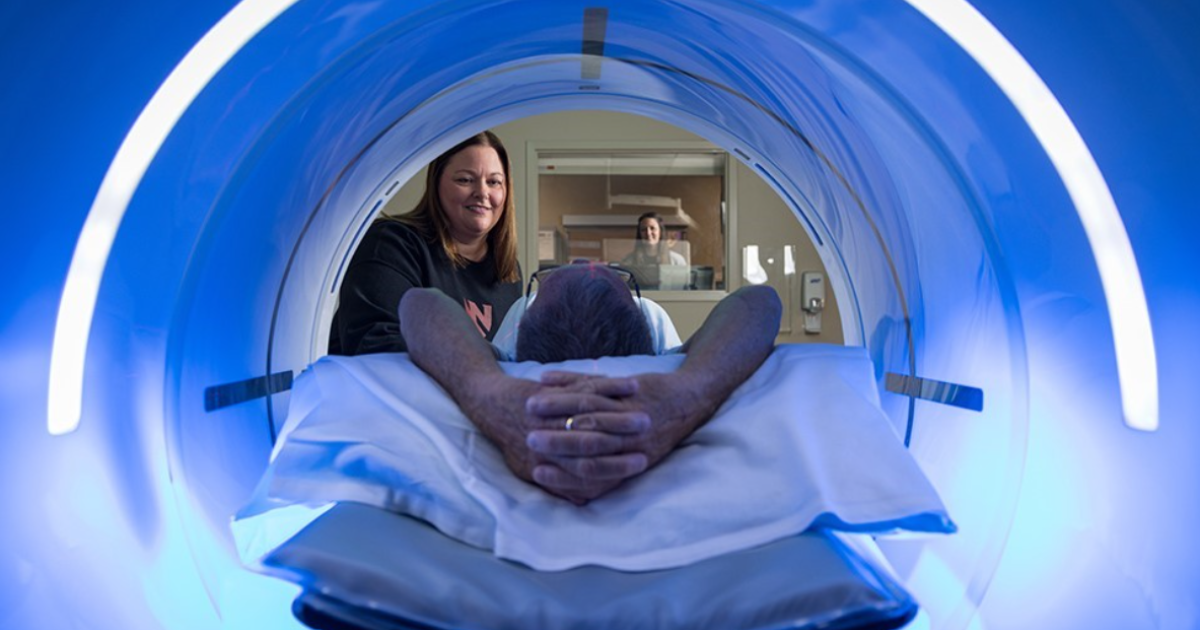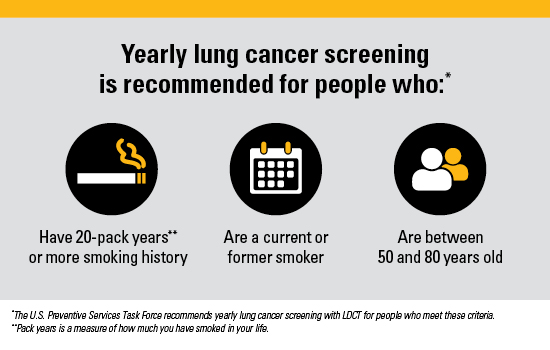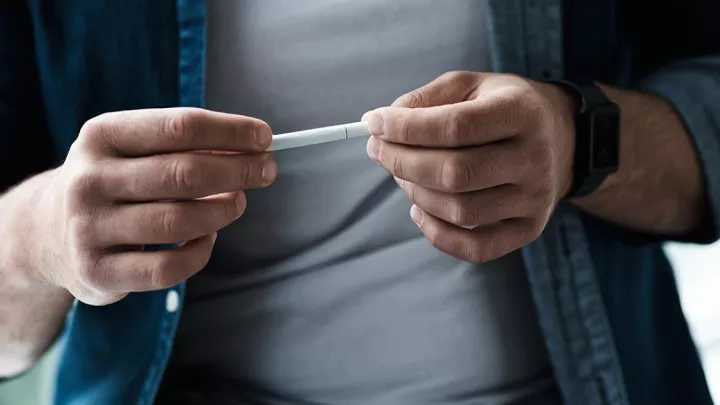Do you need a lung cancer screening?

Participating in the Nebraska Medicine lung cancer screening program is quick, easy and provides peace of mind.
For more than 30 years, Dori Chrisman was a smoker. It was because of this long history that she was looking for a breath of fresh air and peace of mind.
Lung cancer is the second most common cancer and the leading cause of cancer deaths in the United States. It is difficult to identify, and many individuals don’t experience any symptoms until the cancer has reached an advanced stage.
Chrisman’s primary care physician informed her about the Nebraska Medicine lung cancer screening program.
“I've always worried about the harm my previous smoking habits have done to my lungs,” says Smith.

A screening is used to detect lung cancer early when it is more likely to be curable. If lung cancer is caught before it spreads, the likelihood of survival increases greatly. However, according to 2022 data, a State of Lung Cancer Report found only 5.8% of eligible people in the United States have been screened for lung cancer. Annual lung cancer screenings are recommended to those who have a history of smoking (20-pack/year history) and between the ages of 50 to 80.
After completing a brief survey, Chrisman was then scheduled for an initial telephone appointment to review the risks and benefits of the screening, as well as their subsequent CT scans. Each lung cancer screening participant will have a low-dose CT scan performed that takes multiple pictures as they lie on a table that slides in and out of the machine. A computer then combines these images into a detailed picture of their lungs.
Chrisman received a call with her CT results about four hours after her scan.
“I have more peace of mind knowing that the CT scan showed that I do not have lung cancer,” she says. “Now, I have my next appointment set up next year, so I’m ready to stay proactive.”
There is a $200 cash pay option for the screening. Medicare and most insurance plans fully cover lung cancer screening.







